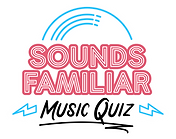5 Incredible Benefits of Music
- djalscott
- Dec 4, 2023
- 3 min read
Music is a universal language that transcends borders and cultures, and its impact on our lives goes beyond mere entertainment. It has been an integral part of human existence for centuries, and its influence on our physical, mental, and emotional well-being is nothing short of incredible. In this article, we will explore five remarkable benefits of music.
1. Enhanced Cognitive Abilities
Music has a profound impact on our cognitive abilities. It engages various parts of the brain, enhancing memory, attention, and problem-solving skills. For individuals of all ages, from children learning their first instruments to seniors engaged in musical activities, music helps maintain mental agility. Many parents encourage their children to learn musical instruments because it can lead to improved academic performance. Even simply listening to music can stimulate the brain, making complex tasks seem more manageable.
2. Stress Reduction and Emotional Well-being
Music is often referred to as a natural mood enhancer. It can evoke a wide range of emotions, from joy to nostalgia to sadness. Listening to music that resonates with our current emotional state can help us process and regulate our feelings. In stressful situations, calming music can reduce anxiety and lower stress-related hormones in the body. Many people find solace in music during difficult times, whether it's through creating music or simply enjoying it. Studies have shown that listening to classical music before bed can help improve sleep, which, in turn, helps people feel and function better during waking hours.
3. Enhanced Physical Coordination
Music and rhythm are closely connected to physical coordination. Listening to music with a strong beat, like a drum rhythm, can encourage us to move in sync with the tempo. This is why music is often integral to exercise routines and dance classes. Listening to motivational music during exercise, like running, can help improve performance and endurance. For individuals with Parkinson's disease, a neurological disorder that affects movement, music therapy is remarkably effective. Rhythmic auditory stimulation (RAS), involving synchronisation of movement with a musical beat, helps improve gait and mobility in Parkinson's patients.
4. Social Connection and Bonding
Music has a unique ability to bring people together. From tribal drum circles to modern-day concerts, music has always been central to social and communal activities. Singing, playing instruments, or simply enjoying music in a group setting fosters social bonds and enhances our sense of belonging. In healthcare settings, music therapy can be particularly effective in building connections among patients, providing an outlet for self-expression, and reducing feelings of isolation.
5. Pain Management and Healing
Music's therapeutic properties extend to pain management and healing. Listening to music can release endorphins, our body's natural pain relievers, which can help alleviate pain and discomfort. In clinical settings, music therapy assists patients in managing pain during medical procedures and postoperative recovery. Music's ability to soothe and comfort patients has also been shown to reduce pain perception. Additionally, studies have suggested that music therapy may enhance the immune system and promote faster healing.
Tips for Enjoying the Benefits of Music in Your Everyday Life
Consider the following ways you can bring more music into your life and enjoy the many benefits it offers:
Create playlists for different moods: Tailor your music selection to match your emotional state, whether you need a mood boost or a calming influence.
Incorporate music into daily routines: Listen to music while you exercise, commute, or work to enhance productivity and make tasks more enjoyable.
Learn to play an instrument: Exploring music through playing an instrument can be a fulfilling and therapeutic hobby.
Engage in group music activities: Connect with others through a shared love of music. Consider music quizzes, live music events, joining a choir or starting a band.
Experiment with new genres: Don't limit yourself to a single genre; explore various styles of music to expand your musical horizons.
Use music as a stress-relief tool: Whenever stress mounts, turn to soothing melodies to calm your nerves.
Share music with loved ones: Create musical memories with friends and family by attending concerts, music quizzes and events or enjoying musical evenings together at home.
Support emerging artists: Discover new talents and support local musicians to contribute to the music community.
Incorporate music into daily tasks or rituals: Use music as a backdrop for study, work, meditation, yoga, or bedtime routines to enhance their effectiveness.
Conclusion
Music is a powerful force that brings numerous benefits to our lives. It enhances cognitive abilities, reduces stress, and fosters emotional well-being. Music encourages physical coordination and can profoundly impact individuals living with conditions such as Parkinson's disease. It promotes social connection and bonding while also serving as a tool for pain management and healing. Its influence on our lives is immeasurable, making it an essential part of the human experience, from cradle to old age. The remarkable benefits of music remind us of its undeniable significance in enhancing our quality of life.







